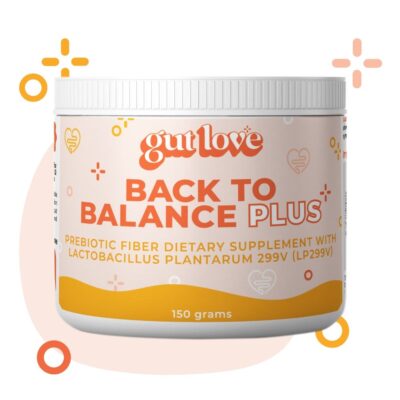IBD can have a far-reaching effect on all aspects of everyday life. And for female IBD patients, the menstrual cycle is often no exception.
The sex hormones that dictate a woman’s menstrual cycle are delicately balanced, and they can be disrupted easily whether you’re an IBD sufferer or not.
However, IBD comes with several symptoms and side effects that can make a negative impact on sex hormones more common and severe. These include chronic inflammation, poor nutrition, and stress. Plus, steroids used to treat Crohn’s and Ulcerative Colitis can also have an effect on the menstrual cycle.
These effects can look like an irregular cycle or a cycle that stops altogether, Alternatively, these IBD factors can have repercussions on menses symptoms.
Many women seem to believe they simply have to put up with an irregular period or difficult symptoms before and during their cycle. But menstruation doesn’t have to be a wholly unpleasant and disruptive experience.
Understanding how IBD can alter menstruation, and how to manage and minimize these side effects, is the first step in improving your menses experience as an IBD patient.
So, let’s dive deeper into the science…
Does IBD affect menstrual health?
How common are menstrual irregularities in women with IBD?
An irregular menstrual cycle is a fairly common issue amongst women, and it can have multiple causes from thyroid issues and hormonal disorders, to being underweight or under excess stress.
But studies have shown that there is also a direct link between people with IBD and an irregular period.
In a 2014 study with 121 subjects, one quarter had a change in the time between their cycles in the year before their IBD diagnosis, and 21% experienced a change in the length of their flow.
The study also found that quality of life was considerably lower in women who lacked a regular cycle. This demonstrates plainly that what can be brushed off as normal women’s issues can have a harmful impact on day-to-day life, and therefore should be taken very seriously.
An irregular cycle can be inconvenient and increase stress, with can have a knock-on effect on IBD symptoms and sex hormones. It can also make it harder to either try to conceive or use natural family planning methods as a means of birth control.
While an irregular cycle may not always be caused by IBD, Crohns and Colitis patients who experience one should look into whether the two are linked.
Does IBD affect GI symptoms around menstruation?
A change in bowel habits is relatively common during menstruation, and studies have shown this is heightened in those with inflammatory bowel disease.
There are also suggested risk factors for worse symptoms during menstruation in IBD patients, such as smoking, biological treatment, and previous abdominal operations. But a 2013 study discovered that IBD patients had more regular GI symptoms during their menstrual cycles, such as nausea, flatulence, and abdominal pain, compared to a healthy control group.
This study concluded by recommending that doctors should “acknowledge that gender-specific issues such as menstruation can influence symptoms and signs throughout the menstrual cycle”, and we have to agree.
Why does menstruation impact bowel habits?
It’s important to note that menstruation can have an effect on bowel habits even in those without IBD. We would guess that you’ve probably seen social media videos, articles and skits talking about “period poops”, and these are not a red herring.
The 2013 study, for example, did find that some of the healthy control group also experienced gastrointestinal symptoms such as diarrhea and abdominal discomfort/pain, albeit not as many as IBD patients.
But why is this?
The simple answer is that it’s down to hormones, and more specifically, prostaglandins.
The link between prostaglandins and GI symptoms
Prostaglandins are released during the menstrual cycle to trigger the uterus’s smooth muscles to relax so they can shed their lining. But these hormones can have a knock-on effect on the bowel, and lead to more frequent bowel movements and diarrhea.
And as we already know, this can be more extreme in those with IBD.
Prostaglandins also play a role in inflammation, and high levels can lead to heavier periods and more painful cramps.
How can I improve menstrual health with IBD?
Rest assured that there are steps you can take to take back control of your menstrual health.
Working on strategies that support your IBD and inflammation reduction is a great starting point for reducing menstrual symptoms since we know inflammation can ramp up menstrual symptoms.
Staying on your course of medications is a great starting point. Also incorporating a good nutrition plan that includes dietary strategies and targeted supplementation can help amplify what you are currently doing.
Also, foods rich in phytoestrogens can also be helpful in reducing both menstrual symptoms and menopause symptoms (1, 2).
Soy foods like tofu, edamame, soy milk, and tempeh are rich sources of phytoestrogens. Despite the fears about soy online, the research points to soy is safe to consume food that actually helps be protective and supportive of menstrual health (3).
Some phytoestrogen-rich foods include:
- Ground flaxseed
- Soybeans
- Green beans
- Garbanzo beans
- Sesame seeds
- Strawberries
- Raspberries
Other ways to improve menstrual health
There are also some general ways you can improve menstrual health such as:
- Restore weight if weight loss has impacted the menstrual cycle
- Reduce stress
- Stay hydrated
- Eat plenty of antioxidant-rich foods
- Be mindful of using NSAIDs to treat menstrual symptoms
Tips for managing symptoms during the menstrual cycle
Now let’s look at some tips that are even more specific to those with IBD:
- Keep track of your cycle to understand it better. Record your symptoms, length of cycle, cervical mucus, etc – this will make it easier to discuss symptoms with your doctor. You could use an app for IBD to help you do this.
- Review patterns over time.
- Keep in mind that “mini flares” can happen just before or during your period.
- Discuss any concerns with your healthcare team and let them know if your cycle stops, becomes heavier or irregular, you experience extreme pain, etc.
- Aim to reduce overall stress and inflammation. This may be through diet, lifestyle, strategic supplementation, medication, or other interventions.
- Be aware of the symptoms of IBD-related anemia and discuss these with your healthcare provider.
Get the IBD support you deserve
You don’t have to suffer in silence with any aspect of your IBD and its symptoms.
Our specialist team of IBD dietitians is here to provide you with the nutritional support to reduce flare-ups and improve your overall quality of life.
Get in touch today to access the IBD support you deserve.
References
- Bacciottini, Lucia, Alberto Falchetti, Barbara Pampaloni, Elisa Bartolini, Anna Maria Carossino, and Maria Luisa Brandi. “Phytoestrogens: Food or Drug?” Clinical Cases in Mineral and Bone Metabolism 4, no. 2 (2007): 123–30.
- Chen, M.-N., C.-C. Lin, and C.-F. Liu. “Efficacy of Phytoestrogens for Menopausal Symptoms: A Meta-Analysis and Systematic Review.” Climacteric: The Journal of the International Menopause Society 18, no. 2 (April 2015): 260–69. https://doi.org/10.3109/13697137.2014.966241.
- Hooper, L., J. J. Ryder, M. S. Kurzer, J. W. Lampe, M. J. Messina, W. R. Phipps, and A. Cassidy. “Effects of Soy Protein and Isoflavones on Circulating Hormone Concentrations in Pre- and Post-Menopausal Women: A Systematic Review and Meta-Analysis.” Human Reproduction Update 15, no. 4 (August 2009): 423–40. https://doi.org/10.1093/humupd/dmp010.
- Kuiper, G. G., J. G. Lemmen, B. Carlsson, J. C. Corton, S. H. Safe, P. T. van der Saag, B. van der Burg, and J. A. Gustafsson. “Interaction of Estrogenic Chemicals and Phytoestrogens with Estrogen Receptor Beta.” Endocrinology 139, no. 10 (October 1998): 4252–63. https://doi.org/10.1210/endo.139.10.6216.






0 Comments